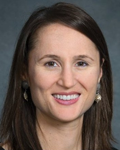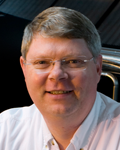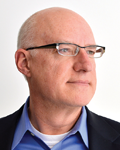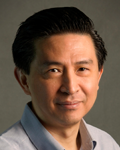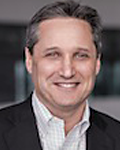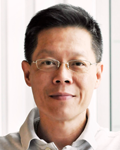Scott Tease
Executive Director, HPC
Lenovo
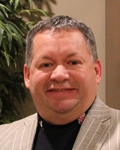 Following the transfer of IBM’s System x division to Lenovo, Scott Tease emerged as executive director for HPC at Lenovo. With Tease leading the way, the company is expected to become the second largest HPC systems business in the world behind HP.
Following the transfer of IBM’s System x division to Lenovo, Scott Tease emerged as executive director for HPC at Lenovo. With Tease leading the way, the company is expected to become the second largest HPC systems business in the world behind HP.
Lenovo’s momentum began following the SC14 conference in New Orleans, where the company introduced a new water-cooled NeXtScale modular system sporting unique ultra-high performance “Haswell” Xeon E5-2698a v3 processors and positioning this machine to accept Intel’s “Knights Landing” Xeon Phi processors when they ship in 2016.
Through efforts such as these to compress higher performance into a more compact form, Lenovo anticipates that 2015 will be a big year for HPC as the number of petaflop-scale systems expand and the number of people using HPC continues to increase.
Toward that end, Lenovo will install a NextScale WCT system at the Leibniz-Rechenzentrum in Munich, Germany. They will also be working with a number of key HPC client partners to open an innovation center in Stuttgart, Germany in March of this year.
HPCwire: Hi Scott. Congratulations on being selected as an HPCwire 2015 Person to Watch. Overnight, Lenovo has turned into one of the largest HPC systems businesses in the world. How is the transition going, and what direction does Lenovo plan on taking the business in 2015 and beyond? Are there any surprises in store?
As you can imagine, the past few months have been extremely busy as we transitioned from IBM to Lenovo. We’re all very excited by how quickly the teams have merged and are now moving our technology vision forward. Lenovo has been overwhelmingly supportive of the System x team and the technology roadmap. Since becoming part of Lenovo, we had the honor of hosting our CEO, Yang Yuanqing, in our new labs several times ─ demonstrating the technology that Lenovo can now deliver to clients worldwide.
With the purchase of System x, Lenovo acquired the entire IBM x86 product line along with the skills ─ engineering, development, technical sales, marketing, manufacturing, solution building, project management and architecture ─ this will propel the company into a leadership position in the HPC space. Combining this industry expertise with a company that has a clear desire to be the leader in x86 computing and HPC, is a powerful marriage. We have a few surprises that we’ll be sharing with HPCWire and our clients over the coming months. I’m confident these announcements will show our clients and potential clients that Lenovo is serious about leading in the HPC space.
HPCwire: Obviously, IBM and Lenovo are two very different companies. Are there any significant differences in how you approach the market place with your offerings? What are your priorities right now for 2015?
There is no doubt that IBM and Lenovo are different, but they are similar in one important way. Although IBM and Lenovo have been targeting different market segments, we’ve seen that like IBM, Lenovo is driven by the desire to innovate. A great example is the Yoga Tablet . It’s a category-redefining product that was driven out of a desire to change how people interact with their technology. If you have one like I do, I think you’ll agree that Lenovo succeeded here.
One major difference between IBM and Lenovo is that Lenovo has a much simpler business model. Lenovo is a hardware company that is proud to be in the hardware business. Because we don’t have competing business units, we’re open to more partnerships and cooperation with software vendors, storage vendors and solution providers ─ giving us greater flexibility with our technology roadmap. For 2015, my team’s goal is simple ─ grow HPC. HPC is a core focus area for Lenovo and we have the products, skills, excitement and momentum to realize that goal. We want to be a player in the HPC space delivering small departmental HPC systems up to the largest super computers in the world.
HPCwire: As you look down the road at 2015 and beyond, what trends do you see developing that are worth taking note of?
My team and I view the server market like a tree with HPC being the root where all things begin. HPC clients are innovators and risk takers. They push the envelope on what is possible with technology, and in doing so, they forge a path for others to emulate. The number of innovations that started in HPC and have now migrated to the broader server market is amazing. HPC is a bell-weather, which is one of the key reasons it was important to us at IBM, and remains important to us as Lenovo. A few dominating themes will emerge over the coming years ─ all of which involve greater diversity in the availability of different IT components.
First, we expect a move toward more customized solutions in areas such as specialty accelerators. For example, with GPUs and FPGA, clients will expect to see exponential improvement in performance per dollar and these technologies are one way to achieve that. We believe that there will be a growing number of processor options available to clients. Not all will be widely adopted, but there will definitely be more choices. Finally, we expect to see the traditional lines between server, storage and networking blur as clients struggle to keep up with the non-stop growth in data. If you are not a proponent of change, have no fear, some things will remain the same, such as the struggle to tweak every bit of performance from each watt and dollar available. These are exciting times for sure!
HPCwire: On a more intimate level, what can you tell us about yourself – personal life, family, background, hobbies?
I grew up in North Carolina right near the coast in Jacksonville, home of Marine Corps Base Camp Lejeune, so I’m a big fan of the US Marines! My wife and I have been married for more than 20 years and have been fortunate to call North Carolina home for most of our lives. We recently spent three years living abroad in the beautiful city of Taipei where I helped run the Systems and Technology lab for IBM. We fell in love with the Taiwanese people and it became a second home for us. When I’m not working (which is not often enough) I’m either travelling or spending time on the coast. When I’m really lucky, I find myself knee deep in a trout stream with a fly rod in my hand spending some quiet time and unplugging for a while.
HPCwire: One last question – What can you share about yourself that you think your colleagues would be surprised to learn?
Ha, probably some things I might not want to admit. Kidding aside, one thing that my colleagues probably don’t know is that I graduated from North Carolina State University (Go Wolfpack!) with a degree in Chemistry with a focus on metals chemistry. Fifteen years ago, I was looking for a change in careers and I started with IBM. I immediately fell in love with technology, server hardware and product marketing and have been ever since. That’s why this new chapter at Lenovo is so exciting for me. I cannot wait to see what the System x team is able to accomplish over here as part of Lenovo. I’m on a great team in a great company that is committed to the x86 hardware market. As a technology lover, it doesn’t get much better than that.
